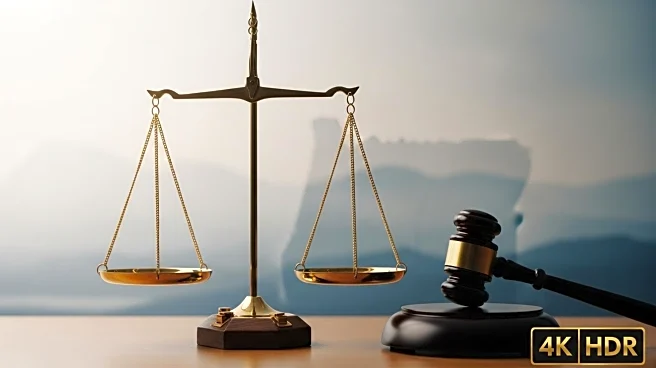What's Happening?
The Department of Justice has filed lawsuits against the states of Maine and Oregon, seeking access to their voter registration lists, including sensitive personal information such as partial Social Security numbers. The lawsuits mark an escalation in the DOJ's efforts to obtain voter data from states, which have largely resisted these requests. Oregon Secretary of State Tobias Read and Maine Secretary of State Shenna Bellows, both Democrats, have expressed strong opposition to the DOJ's demands, citing concerns over privacy and data security. The DOJ argues that the refusal to provide this data undermines the integrity of the electoral process and violates federal law. The lawsuits are part of a broader push by the Trump administration to scrutinize voter registration practices across the country.
Why It's Important?
The legal battle over voter data access has significant implications for election integrity and privacy rights in the United States. The DOJ's actions could set a precedent for federal intervention in state-managed electoral processes, potentially altering the balance of power between state and federal authorities. Critics argue that the push for voter data may lead to increased voter suppression and privacy violations, while supporters claim it is necessary to prevent voter fraud. The outcome of these lawsuits could impact how voter registration lists are maintained and accessed, influencing future elections and the protection of voter rights.
What's Next?
As the lawsuits proceed, both Maine and Oregon are expected to defend their stance in court, potentially leading to a prolonged legal battle. Other states that have declined similar DOJ requests may face similar legal challenges. The Trump administration's broader strategy regarding voter data and election integrity will likely continue to unfold, with potential implications for upcoming elections. Stakeholders, including civil rights groups and election officials, will closely monitor the situation, advocating for privacy protections and fair electoral practices.
Beyond the Headlines
The DOJ's pursuit of voter data raises ethical and legal questions about the balance between election security and individual privacy. The involvement of officials with histories of promoting election fraud claims adds a layer of controversy to the DOJ's actions. The broader implications of federal demands for voter data could lead to shifts in public trust in electoral processes and government transparency.










